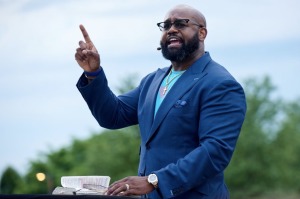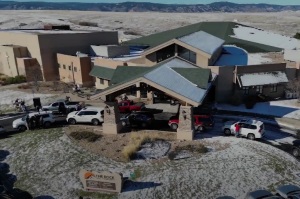Chaplains for Atheists: Messy Implications for Atheism
The House of Representatives voted July 23 against proposals for atheist chaplains in the U.S. military. The vote was an overwhelming defeat for the idea. Only two Republicans and 171 Democrats voted for atheist chaplains.
Contrary to what you may be reading, Christians should be disappointed and atheists should be glad.
Why? Because allowing atheist chaplains recognizes atheism as a religion and would make atheists subject to the same legal restrictions they have gleefully placed on every other religion.
In the contemporary environment it is easier to speak against God than for God in the public square. An officially sanctioned military chaplaincy for atheists could actually weaken the atheists' grip on public religious expression.
After all, it was a Supreme Court justice who, in 1961, recognized non-belief in a deity as religion. "Among religions in this country which do not teach what would generally be considered a belief in the existence of God are Buddhism, Taoism, Ethical Culture, Secular Humanism, and others," opined Justice Hugo Black, in a footnote in the Torcaso v Watkins case.
Atheists seem to want atheism to be a religion.
"Humanism fills the same role for atheists that Christianity does for Christians and Judaism does for Jews," said Jason Torpy, president of the Military Association of Atheists and Freethinkers, in support of the atheist chaplaincy proposal.
If atheists want it, it's about time, therefore, that atheism should be recognized for what it is – a belief system regarding deity and ultimate reality. It has its own creeds, high priests, and scriptures. Bygone prophets like Bertrand Russell are revered along with the contemporary evangelists of atheism, like Richard Dawkins. The late Christopher Hitchens is among its saints.
Appointing atheist chaplains would give official sanction of sorts to the religious nature of atheism. In fact, atheism focuses passionately on spirituality. It works feverishly to deny the spiritual nature of the human being, and only wants the chaplains for ethical and psychological guidance.
In that light, maybe advocates for an atheist military chaplaincy might rethink their position.
Think about the inferences.
Now, every time a non-theist squeaks opposition to prayer at a school ballgame, or before a city council meeting, or most any other public event, powerful movements mobilize. The mere lifting of a potentially litigating eyebrow shuts down what many consider freedom of speech and expression.
Atheism's well-financed institutions often base their arguments on the allegation that taxpayer money is being used to advocate a particular religion. But if atheism is seen for what it is, a religion, then theists might be able to claim their tax money is now used to advocate the atheist position of no prayer.
So if atheism is recognized as a religion, might it be possible that theists could have new standing? They might even be able to argue that authorities are unconstitutionally favoring the religion of atheism by restricting prayer to a deity?
The Founders, we are reminded, opposed a state religion. But today secular humanism is most definitely the American state religion in the eyes of some courts. Atheists use their religion to regularly win orders for the removal of crosses and other religious symbols, the abolition of prayer in certain public institutions, and the prohibition of teaching that might imply advocacy of any religion in public schools except atheism.
This atheist chaplain thing could get messy for the atheists. If they are recognized as religionists they may be under the same Big Brother search lamp, legal threats and harassment theistic religions face every day throughout the nation.
Perhaps its advocates should rethink their position. After all, they might lose the power to remove all those terribly offensive Christmas nativity scenes.
Maybe the stables, mangers, shepherds and animals could be replaced with Professor Hawking's "fluctuating void." Which would mean the crèches would be replaced with nothing – a perfect symbol for their religion.





























